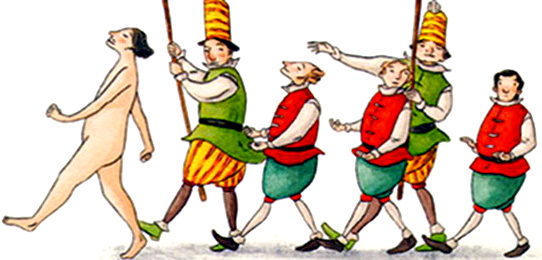
https://youtu.be/p_AyuhbnPOI?list=WL
March 13, 2020
Dr. Wolfgang Wodarg is the first specialist we met to understand the current crisis about the coronavirus.
Wolfgang Wodarg says: The corona hype is not based on any extraordinary public health danger. However, it causes considerable damage to our freedom and personal rights through frivolous and unjustified quarantine measures and restrictions. The images in the media are frightening and the traffic in China’s cities seems to be regulated by the clinical thermometer. Evidence-based epidemiological assessment is drowning in the mainstream of fear mongers in labs, media, and ministries.
Here is the webpage of Wolfgang Wodarg: https://www.wodarg.com
These are the producers of the video: www.oval.media
Transcript of Dr. Wolfgang Wodarg’s Words
Transcript of Oval media’s translation provided by truthcomestolight.com
I would like to tell something about the coronavirus epidemic that we are allegedly having right now. First I thought this hype is going to end again, but it has increased so much, and we finally have to start taking a closer look.
I worked as a doctor and conducted a health department. I had my own sentinel, my own monitoring system for flu diseases. And every year I observed how many people became sick in an area of 150,000 inhabitants.
Every new year, worldwide, we have new types of viruses because the viruses have to change themselves. If the same viruses just came again in the next year, our immune system would recognize them, so they would not be able to make us sick or to multiply — which is what they want. So they regularly have to change a bit and that’s why we have new variants of these viruses every year.
There are about 100 different types of viruses that are changing constantly. Up to now, we didn’t really care which viruses caused this flu … or disease or however you want to call it.
But there have been investigations over several years in Glasgow. There they tried to use the available tests. That means they didn’t examine all 100 types, but just the ones they had tests for. So they looked at maybe 8 or 10 different viruses and coronaviruses have always been part of them.
These are the figures from Glasgow.

Starting from 2005 to 2013 they checked which viruses occur among respiratory diseases. And these colored columns are the viruses. The green parts refer to the coronavirus that was always in the mix.
The coronaviruses normally make up 7% to 15%, maybe 5% to 14%; it always fluctuates a bit. Hence, it’s just normal that a big part of viruses are coronaviruses.
So the following happens:

In Wuhan there is the biggest safety laboratory for viruses in whole China. So there are a lot of experts on the topic, dealing with it all day long. Wuhan is a big city, 11 million inhabitants, big hospitals, big intensive care units, always people being ventilated, people with pneumonia … hundreds of them.
And they did tests with a few patients, less than 50, looked for the viruses they had and examined their RNA in the laboratory and they found a new type. This attracted their attention.
When a virologist finds something like this he puts it in a global data base. And this data base is accessible for scientists all over the world, in Berlin for example.
In Berlin they checked and compared this new entry and tried to create a test to measure this new variant.
Then Mr. Drosten submitted a protocol to the WHO, and it got admitted really quickly. Usually, as a test is considered a product of medicine, it has to be validated. This means it has to be checked very precisely.
What does this test actually say? What does it measure?
The mentioned test is an inhouse-test developed in the Charité-clinic. But because there weren’t any validated tests and the great panic arose, it was just decided to use this test everywhere. And then Mr. Drosten provided the test.
Of course, the virologist can’t say if the virus is dangerous or not. He can only say: “This one is different” or “We have a test for this” …
But is the virus dangerous, Mr. Drosten?
How is he supposed to know? He would need further epidemological data based on observations of how sick the people are. How fast do they get healthy again? Are there less victims than before?
That’s why it is important to look at the data from previous years to compare them — to look at the mortality rates to see how many people died of the virus.

So while looking for a specific virus, for example the coronovirus, you can examine the total population. What you will find is that presumably around 8% or 10% of the population will have some kind of virus, that makes them sick.
But if you examine medical practices, do your tests there, to determine who is sick, then of course you would find a lot more positive cases. And if you examine hospitals and take samples there then you would find even more corona-infected people.
That is to say, depending on which proportions of the population you examine — whether it is the whole population, patients in the waiting room, people in a clinic, or when you examine very ill patients in the intensive care unit that are about to die — you will expectedly find these 7% – 15% coronaviruses every time you do a test. However, if they die of the coronavirus or of other viruses while just having also corona can’t be determined for sure with this.
So when you look at the death rates in Italy, you want to know where the tests have been taken. Where and how have these few available tests been used?
If they were used in a hospital on serious or terminally ill then obviously the corona death rate rises. Just because it looked like it, because of the specific group that was examined.

Mortality, disease-specific mortality refers to the percentage of dead among the people infected with this disease.
And concerning the seasonal acute respiratory disease — commonly known as the flu — there is a mortality of 0.1%, which already is the maximum. That means that one in a thousand flu-infected inhabitants dies — every winter. So now we will have to see whether this number increased because of coronaviruses. The assumption for Germany is that there are 20,000 or 30,000 more deaths than without the flu. This is called excess mortality.

So now we know that coronaviruses always make up 5% to 14% of all flu viruses — let’s say 10%. Let’s assume that in the previous years we tested all seriously ill patients in the hospital on the coronavirus — which of course didn’t happen. We would have expected to find 2,000 to 3,000 people dying of a flu each year, that also had the coronavirus. And we still are far away from these numbers.
Apparently it is the case that virologists created something very sensational here, and with their creation they really impressed the Chinese government as well. The Chinese government made something really big out of it, suddenly this was very important politically — completely exceeding the virological frame. All of a sudden, face recognition was installed everywhere at the airports, fever was being measured. The clinical thermometer controlled the traffic on Chinese streets. And all this was so significant that it lead to international consequences, politicians had to deal with it, had to take a stand. Then the virologists came into play again. The governments asked their own virologists and they confirmed that this virus is a thing to worry about and proposed to develop tests to help measure the virus — like in China.
Something was woven around this. A network of information and opinions has been developed in certain expert groups. And the politicians turned to these expert groups, who initially started all this.
And they really absorbed this network, moved within it. This lead to politicians who now are just resting on these arguments, while using these arguments to evaluate who has to be helped, to determine safety measures or what has to be permitted.
All these decisions have just been derived from these arguments. Which means that now it’s going to be very hard for critics to say “Stop. There is nothing going on.”
And this reminds me of this fairytale about the king without clothes on. And just a small child was able to say “Hey, he is naked!”. All the others on the courtyard — surrounding the government and asking the government for advice, because they can’t know themselves — they all played along and joined the hype. And like this, politicians are being courted by many scientists. Scientists who want to be important in politics because they need money for their institutions. Scientists who just swim along in this mainstream and also want their part … “We can help too!”, “We made an app!”, “We have a program for this!”…
So many people saying “Hey, we want to help too!”, because they want to earn money with it and become important.
And what is missing at the moment is a rational way of looking at things.
We should ask questions like “How have you found out that the virus is dangerous?”
“How was it before?”
“Didn’t we have the same thing last year?”
“Is it even something new?”
That’s missing.
And the king is naked.

sourced from worldoftales.com

Truth Comes to Light highlights writers and video creators who ask the difficult questions while sharing their unique insights and visions.
Everything posted on this site is done in the spirit of conversation. Please do your own research and trust yourself when reading and giving consideration to anything that appears here or anywhere else.










